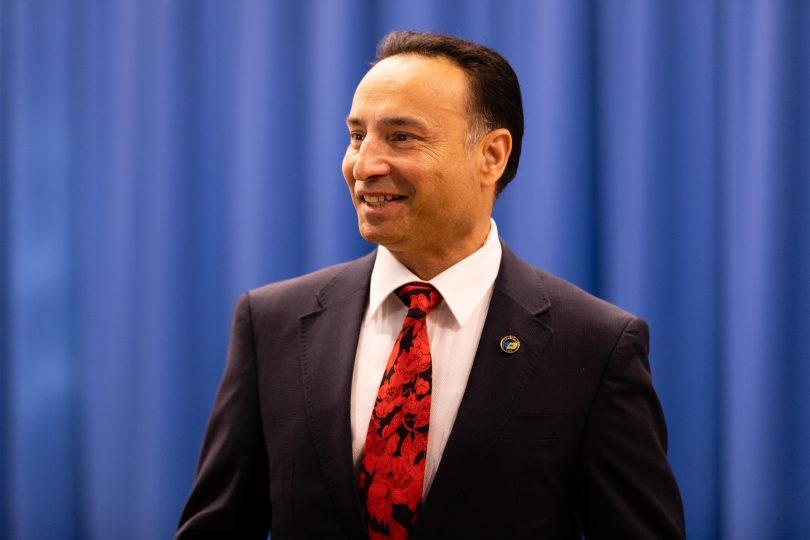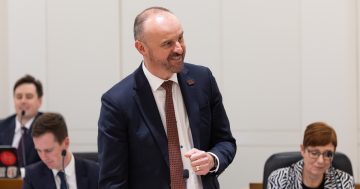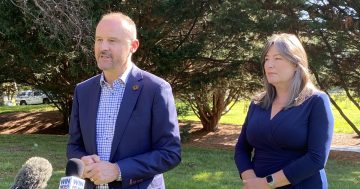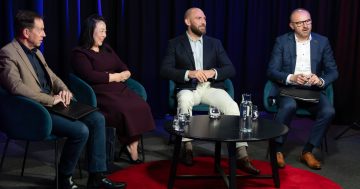
Former MLA Deepak-Raj Gupta is keen to build Labor’s multicultural profile. Photo: File.
ACT Labor needs to recruit more multicultural members to its ranks and support them to be prominent in their communities, according to a review of the party’s 2020 election performance.
The external review also found that the Democratic Labour Party (DLP) being on the ballot confused voters and needed to be countered, that the ACT Greens needed to be taken more seriously and Labor had to do more to differentiate itself.
Labor lost its only multicultural MLA, Deepak-Raj Gupta, in the big swing against it in the northern seat of Yerrabi, and the Canberra Liberals team, which fielded many multicultural candidates across Canberra, contrasted starkly with Labor’s.
The review recommended that Labor establish a multicultural action group within the party to help members build their presence in the broader multicultural community.
ACT Labor secretary Ash van Dijk did not believe the party had neglected the multicultural community but acknowledged there was room for improvement.
While the Gungahlin branch was quite diverse, “when you have a look at the membership more broadly, we need to ensure that the party reflects the community in which we live”, Mr van Dijk said.
He said the first task was to talk to the current members about what they would like to see and ensure the party reflected their priorities.
Fielding more multicultural candidates in Yerrabi might win back voters, but “we need to just ensure we’re out there talking to members of the community and see what it is we can offer them and how they can get involved with us”.
Mr van Dijk said Mr Gupta was keen to play a role in that process.

The ACT Greens celebrate the 2020 ACT election result. Photo: ACT Greens.
The review found that Labor leaked votes to the DLP in Yerrabi, where it polled 4.7 per cent, and Ginninderra (2.4%), and called it a significant problem for the party that needed to be addressed before the 2024 election.
It recommended Labor consider legislation about the naming of political parties to ensure voters were clear about which party they were voting for.
Despite the small DLP vote, the review said that it could still be quite significant in the Hare-Clark system.
“The DLP issue must be addressed as it will be difficult to find a path back to three seats if an approximate loss of 4%+ primary to them occurs,” it said.
Mr van Dijk said the party had already raised the issue in its submission to the Legislative Assembly inquiry into the election.
He said what was on the ballot was quite ambiguous and the DLP was using the electoral funding it garnered in other jurisdictions.
“There’s work to do to make sure the voter intent is met and not muddied by similar naming protocols,” Mr Van Djik said.
He said it wasn’t just a Labor problem. The Canberra Liberals were grappling with the New Liberals party, which was also confusing voters.
The review found that Labor had underestimated the Greens vote and that it should campaign on the basis that the Greens were capable of winning at least a seat in each electorate.
However, it warned that in combating the Greens, Labor should not attempt to “out-Green” the Greens at the expense of Labor’s strong differentiated brand in key areas, including jobs, health and education.
It said the party still had work to do on coming up with a strategy to deal with the Greens.
Mr Van Dijk said that while the Labor-Greens coalition was working, the name of the game was to form majority government.
“We’ve got to ensure that we continue to talk about those really important issues [such as jobs, health and education] as well as what Canberrans care about in the environment space,” he said.
The review was conducted by Queensland ALP State Secretary Julie-Ann Campbell, former CEO of the McKell Institute Sam Crosby, and the Tasmanian Labor Leader’s Deputy Chief of Staff, Karelle Logan.





















